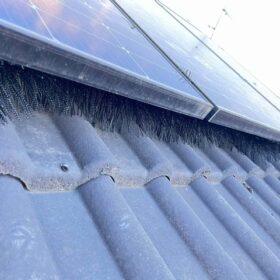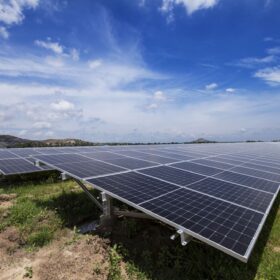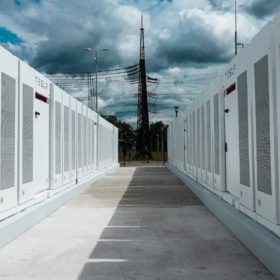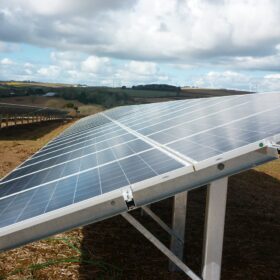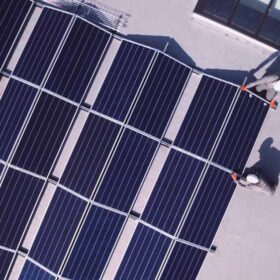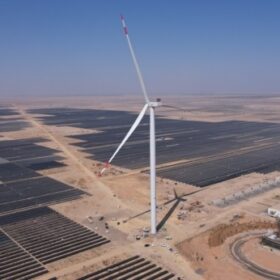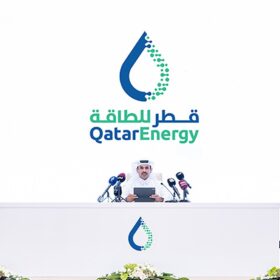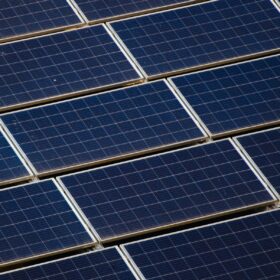Jakson Engineers to invest $240 million for solar manufacturing
Jakson Engineers is setting up a 2.5 GW solar cell manufacturing plant and also expanding its existing module manufacturing facility to 2 GW with an investment of around INR 2,000 crore ($240 million).
Italian startup offers new bird-protection solution for rooftop PV
Italy-based Italgam has developed a new technology to prevent pigeons from nesting under rooftop solar panels. The EVO 2.0 solution uses brushes that fit between the backside of the panels and the roof.
India’s renewable energy sector faces leadership talent crisis, says WalkWater Talent study
A recent report by WalkWater Talent Advisors underscores a significant talent shortage in specialized roles such as project management, business development, and regulatory affairs within India’s renewable energy sector.
GUVNL launches 1.6 GWh battery storage tender
Gujarat Urja Vikas Nigam Ltd (GUVNL) is accepting bids to set up standalone battery energy storage systems (BESS), connected with the State Grid, for an aggregate storage capacity of 800 MWh (400 MW x 2 hours). It may offer an additional 800 MWh (400 MW x2 hours) under green shoe option to successful bidders provided they match the lowest discovered price.
Oriana Power secures 52 MW solar project from BPCL
Oriana Power Ltd will execute a ground-mount solar project with a total capacity of 52 MW for Bharat Petroleum Corp. Ltd. The project is scheduled for commissioning within six months.
Maxeon to offer warranty support for bankrupt SunPower
After closing its business, eligible SunPower customers will have their warranty supported by Maxeon.
Adani Green, TotalEnergies partner for over 1 GW of solar projects in Khavda
Adani Green Energy Ltd (AGEL) and TotalEnergies have agreed to create a new joint venture to accelerate the development of 1,150 MWac (1,575 MWp) of solar projects in Khavda, Gujarat. AGEL will contribute its current assets to the joint venture, while TotalEnergies will inject $444 million.
QatarEnergy to build 2 GW solar plant
QatarEnergy has unveiled plans for a 2 GW solar project in western Qatar, which will more than double the country’s cumulative installed solar capacity.
Gensol, Matrix consortium wins EPC of India’s first biomass to green hydrogen project
Gensol Engineering, in collaboration with Matrix Gas & Renewables Ltd, will establish the project to convert 25 tons of bio-waste into one ton of hydrogen per day. The project is scheduled for completion within 18 months.
ACWA Power secures $2.6 billion for 5.5 GW of solar in Saudi Arabia
ACWA Power has obtained $2.6 billion through a consortium of banks for three solar plants in Saudi Arabia, with a combined capacity of 5.5 GW.

